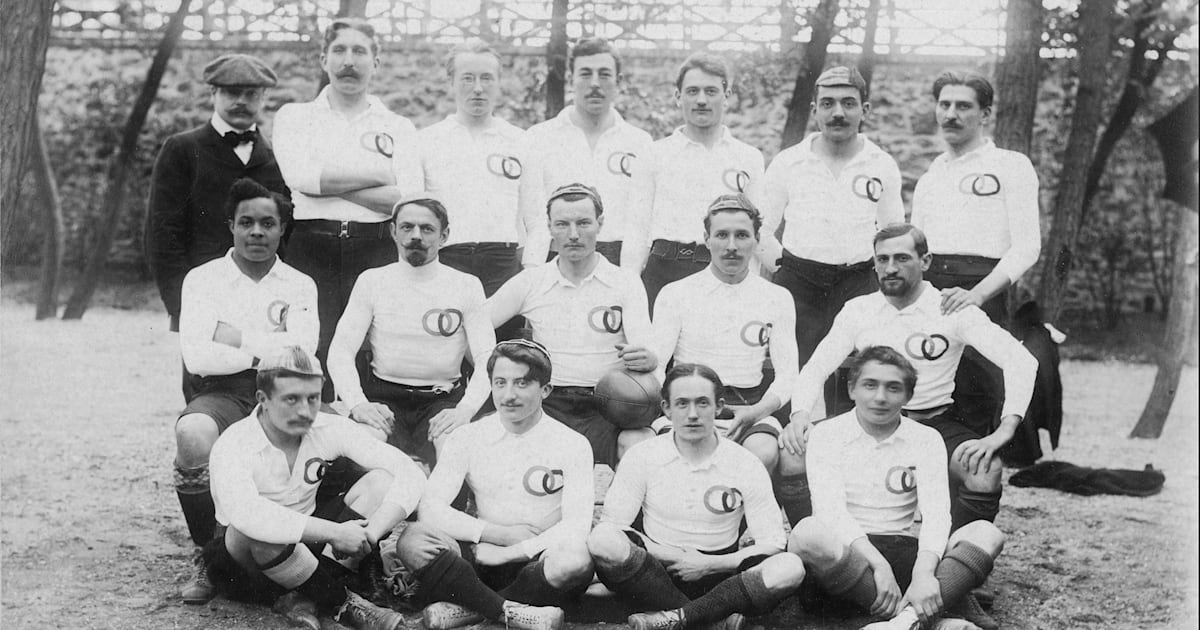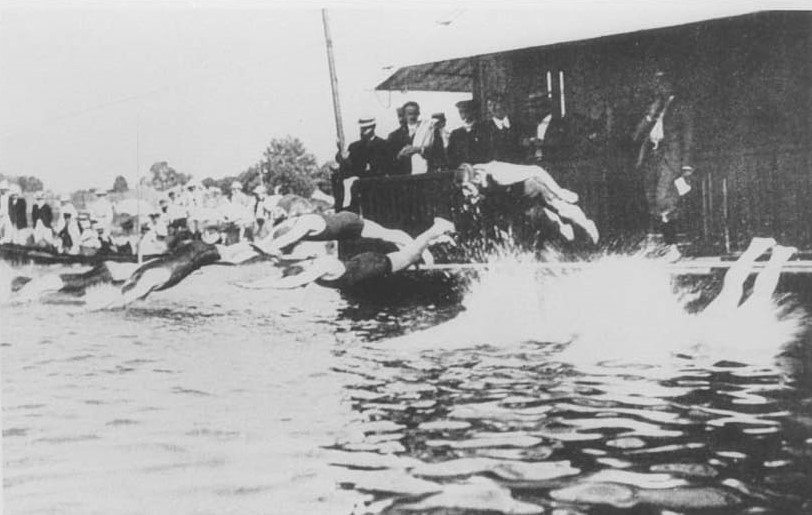
Modern Olympics
A man named Pierre de Coubertin of France was responsible for the revival of the modern Olympics. He was always passionate about sports and gave lectures and wrote papers on physical activity. Coubertin wanted to re-establish the Olympic games, which took place in Olympia, Greece from 776 BC through 393 AD. At this point in the late 1800s, this was a legendary ancient ritual that had been lost for over 15 centuries. Coubertin built an international network of educators, politicians, and aristocrats who helped boost his proposal of the Olympics. After his Olympic proposal was approved by Paris Congress in 1894, the International Olympic Committee (IOC) was created. The IOC was responsible for organizing the Olympics, and Coubertin was elected president of the committee.


Pierre de Coubertin Star-Gazette. March 30, 1896

IOC in 1894
1896 Olympics
In 1896, the first modern Olympics took place in Athens, Greece, its ancient birthplace, and was a huge success. The Games hosted 280 athletes from 14 nations, including Greece, Germany, France, and England. The 1896 Olympics featured the first marathon, which was inspired by a man named Pheidippides who is believed to have ran from Marathon to Athens to announce the defeat of the Persian army in 490 BCE and died immediately after.
Because of the success of the Olympics, the Greek government proposed that Athens should become the permanent home of the Olympics. However, Coubertin wanted the modern Olympics to be international and to rotate the location of the Olympics every 4 years.

1896 Athens Olympics 100 m run at Athens Olympics
World's Fair Movement
At the same time the modern Olympics were being revived, the World's Fair Movement was happening. This stemmed from a successful national fair in France in 1797, which was intended to promote French commerce by showcasing products and crafts. The first international World's Fair was in London in 1851 and was incredibly popular. World’s Fairs symbolized a nation’s achievements and quickly evolved into a way to compare national lifestyles.
Coubertin thought it would be beneficial to link the Olympics with a World's Fair in Paris. He wanted to connect the young, new Olympics to a large and successful event.

1851 London World's Fair
1900 Olympics
The second modern Olympics was set to take place in Paris in 1900 in conjunction with a World's Fair. However, at this time, France considered sports to be frivolous. Sports were thought to be a distraction from more serious pursuits, like art, literature, and politics. Coubertin made detailed plans for the 1900 Olympics in conjunction with the Paris World’s Fair, but the French government shot his plans down again and again. The French government essentially wrestled the games away from the IOC, leaving the 1900 Paris Olympics in the hands of officials who didn't see the value of sports. The 1900 Paris Olympics was a failure because of chaotic organization and inadequate facilities. Instead of sports existing as their own category at the Fair, they were lumped into other classifications. For example, fencing events were placed under the Cutlery category. Additionally, the words "Olympic Games" were never used.


France rugby team at 1900 Olympics University of Pennsylvania at 1900 Olympics